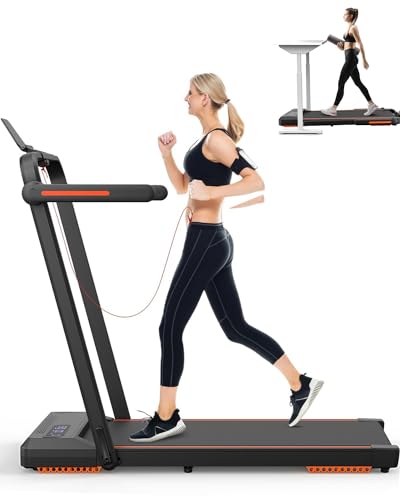Why Adding A Walking Machine To Your Life Will Make All The An Impact

본문
The Walking Machine: A Comprehensive Guide to Your Fitness Companion
In today's hectic world, where time is a high-end, keeping a consistent exercise regimen can be a challenge. For numerous, a walking machine-- commonly called a treadmill-- functions as an ideal physical fitness companion. This short article offers an in-depth look at walking machines, including their benefits, types, maintenance ideas, and regularly asked questions.
Why Choose a Walking Machine?
Walking machines provide a practical and efficient way to incorporate cardiovascular exercise into daily life. Here are several crucial benefits:
- Convenience: Walking machines allow people to exercise anytime, despite climate condition or time constraints. They are best for busy schedules.
- Flexibility: Users can walk, jog, or perform at their own rate and strength.
- Security: Walking machines present a lower threat of injury compared to outside walking or running, particularly for beginners or those recuperating from injuries.
- Tracking Progress: Many treadmills come with built-in displays that track metrics like speed, range, and calories burned.
Kinds Of Walking Machines
When thinking about a walking machine, it's vital to pick the best type based on specific physical fitness objectives and space constraints. Below are the primary kinds of walking machines:
| Type | Description |
|---|---|
| Manual Treadmills | These machines do not have a motor, and users require to walk or run to rotate the belt. |
| Electric Treadmills | Powered by an electric motor, permitting users to set the speed and slope easily. |
| Folding Treadmills | Developed for easy storage, these treadmills can be folded up when not in use. |
| Desk Discount Treadmills | Perfect for a dual work and workout environment, these compact machines enable walking while working. |
| Slope Trainers | These permit users to imitate uphill walking, boosting workout strength and calorie burn. |
Picking the Right Walking Machine
Picking the best walking machine can substantially impact motivation and efficiency. Here are some elements to consider:
Key Features to Look For
- Motor Power: A powerful motor ensures a smooth and constant workout. For occasional walkers, a 1.5 HP motor is generally enough; for much heavier usage, search for 3.0 HP and above.
- Belt Size: A broader and longer belt provides more area for a comfortable stride. Standard sizes vary from 16 inches wide and 50 inches long.
- Incline Options: Adjustable slope settings can mimic walking or running uphill, increasing the strength of the exercise.
- Shock Absorption: Good shock absorption reduces the risk of joint injuries and boosts comfort.
- Console Features: Look for built-in workouts, heart rate displays, and connectivity functions like Bluetooth for a more engaging experience.
Budget Considerations
Walking machines can be found in a wide variety of costs, depending upon features and building quality. Here's a rough budget plan breakdown:
| Price Range | Features |
|---|---|
| Under ₤ 300 | Standard handbook or small electric treadmills with limited features. |
| ₤ 300 - ₤ 700 | More advanced electric treadmills with slope, medium power motors, and better warranties. |
| ₤ 700 - ₤ 1500 | Premium electric treadmills with bigger built-in displays, substantial functions, and service warranties. |
| ₤ 1500 and above | High-end designs offering sophisticated technology, functions, and durable building and construction for severe physical fitness lovers. |
Upkeep Tips for Your Walking Machine
To guarantee longevity and optimal efficiency of a walking machine, consider the following maintenance pointers:
- Regular Cleaning: Dust and sweat can build up on the machine and the belt. Clean down the surface areas and tidy the belt routinely.
- Lubrication: Depending on the model, oiling the running belt periodically can avoid wear and tear. Inspect the producer standards for advised lubrication schedules.
- Evaluation: Periodically check the machine for loose screws or worn parts. Tighten and change as required.
- Calibration: Occasionally, examine the calibration of your machine's metrics to guarantee they provide accurate data.
- Correct Use: Follow the producer's suggestions for weight limitations and operational guidelines.
FAQs About Walking Machines
1. Are walking machines a great workout?
Yes, walking machines supply an outstanding cardiovascular exercise, can assist with weight reduction, and enhance general health.
2. How typically should I use a walking machine?
Go for at least 150 minutes of moderate-intensity aerobic activity weekly, which can easily be achieved with regular sessions on a walking machine.
3. Can I slim down on a walking machine?
Yes, including a walking machine regimen into a healthy diet can promote weight reduction, especially if integrated with intervals and incline training.
4. Is it safe for elders to use a walking machine?
Yes, walking machines can be safe for senior citizens with low-impact settings and security functions like handrails. Nevertheless, individuals ought to speak with their healthcare provider before beginning any exercise program.
5. What's the distinction in between a treadmill and a walking machine?
The term "walking machine" generally describes a treadmill meant for walking, while "treadmill" can describe machines used for different strengths, consisting of running.
With their versatility and benefit, walking machines can significantly improve one's fitness journey. By thoroughly selecting the ideal type, ensuring proper upkeep, and integrating different exercise methods, users can optimize their walking machine's advantages. Just like any workout routine, consistency is key to attaining enduring physical fitness results.


댓글목록0
댓글 포인트 안내